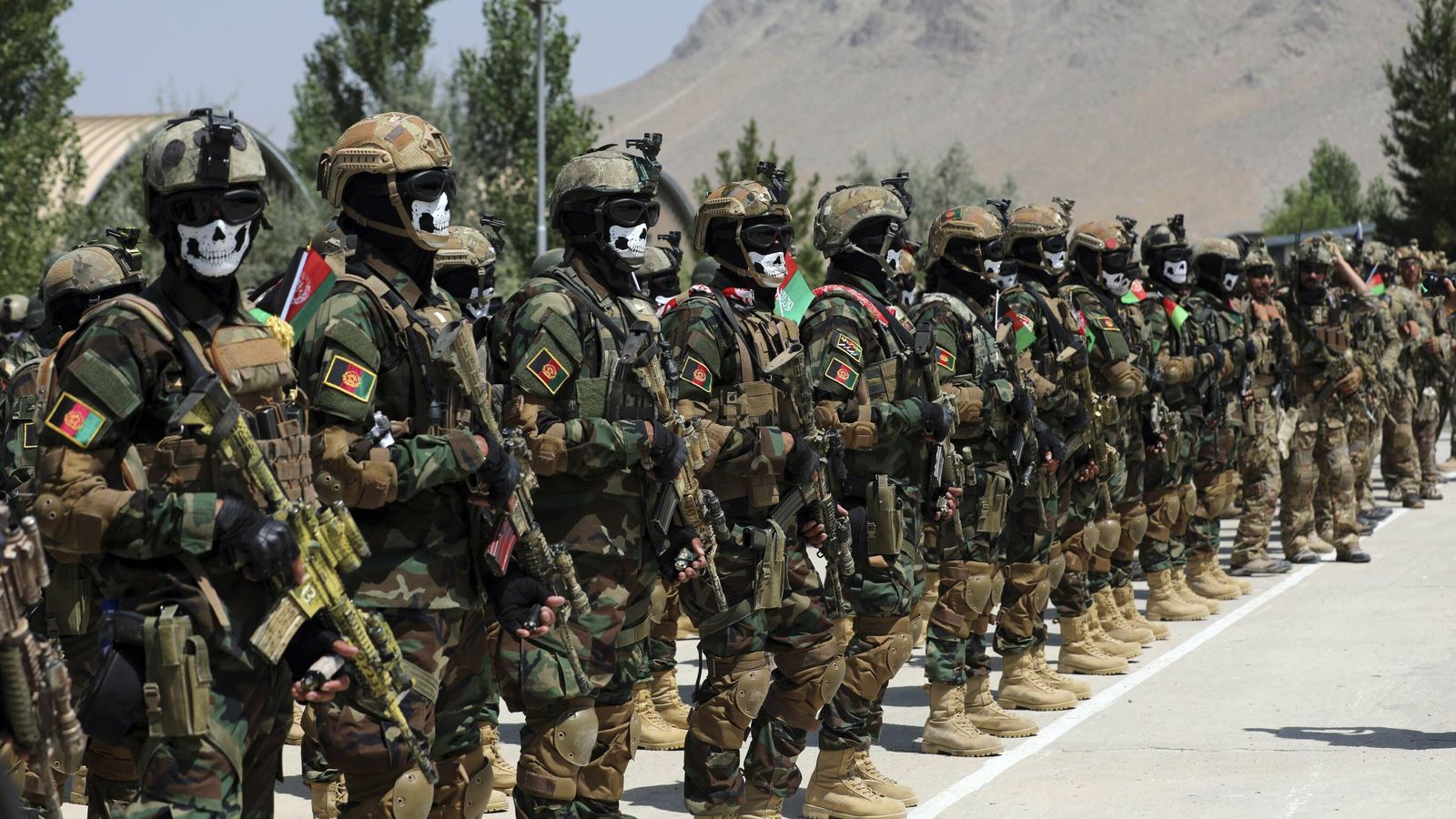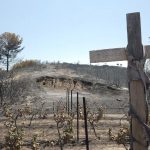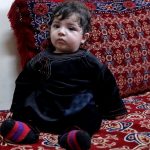At least 400 Afghan special forces trained by the UK are in hiding in Afghanistan, in fear for their lives and desperate to escape to Britain, a former Afghan interpreter has revealed.
Rafi Hottak, 35 who used to work with British special forces in Afghanistan and now lives in Birmingham, said he is compiling a list of names of elite commandos wanting help.
He plans to present the list to the UK government in a bid to pressure ministers to act.
“They’ve served the British government for 20 years, they deserve a life without fear of being killed,” he said.
Some of the most elite, specialist Afghan military groups, trained by UK, US and other allied nations’ special forces, were known by triple digits.
One of them – Commando Force (CF) 333 – is believed to have been set up by UK special forces almost two decades ago.
Its highly-skilled members fought across Afghanistan, supported by their British counterparts, right up until British, US and other foreign troops withdrew.
Rafi said they played a vital role in operations against terrorist and Taliban targets – helping to keep the streets of the UK safe, as well as bolster security in their own country.
“These special forces were the frontline against all those terrorist groups,” Rafi told Sky News in an interview.
“Leaving them behind, I see it as a failure of the UK government, a betrayal of these brave soldiers. They deserve to live a life of dignity and safety.”
Rafi himself was forced to flee Afghanistan and seek asylum in the UK in 2011 after receiving threats from the Taliban because of his work with the British military.
A married father of three, he has since trained as an accountant and started his own business.
But his day job has taken a back seat since the fall of Kabul.
Now, Rafi works from early morning until late at night, every day, reaching out to contacts in Afghanistan and compiling his list.
As well as some 400 Afghan special forces personnel, he has also gathered the names of at least 200 former interpreters and other staff who worked directly for the British military or UK diplomatic mission in Afghanistan, who also want a new life in the UK.
The government created a scheme to allow former employees the right to relocate to Britain. Many were rescued via this policy on evacuation flights.
But a lot of people either had not yet received a reply to their application, had their application rejected or had been accepted but could not make it to the airport.
Please use Chrome browser for a more accessible video player
Rafi said anyone who had worked for British forces – including members of the Afghan special forces – deserved to be given safe passage to the UK.
But he is particularly worried for the Afghan commandos of CF 333.
“The Taliban will look at them as a threat to their regime in the near future and then they will be hunted down and killed,” Rafi said.
Recalling contact he had with those in hiding, he said: “Every single message I receive is that: ‘We will be killed, we are living in hiding, we are not in our villages, we are not in our homes’.
“One of the guys was saying in the past two weeks ‘I have been shifting around different relatives and families’.”
As well as living in fear of the Taliban, many of them are also without work, meaning it is becoming harder to feed their families.
“One of the interpreters sold his bicycle to get food for the family for those few days. That is how desperate the situation is,” Rafi said.
Follow the Daily podcast on Apple Podcasts, Google Podcasts, Spotify, Spreaker
Asked about the plight of those left behind, a spokesperson for the Ministry of Defence said: “We will continue to do all we can to support those who have supported us, and our commitment to those who are eligible for relocation is not time-limited and will endure.
“The ARAP scheme [Afghan Relocations and Assistance Policy] remains open to applications and we will continue to support those who are eligible.”






















